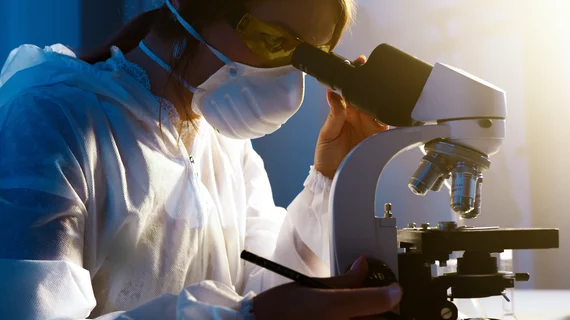New machine learning model double-checks its own work for unpredictability on breast cancer imaging
Convolutional neural networks show promise in breast cancer detection, but the technology still isn’t completely reliable. However, researchers at Michigan Technological University have developed a new machine learning model to overcome some common limitations.
The researchers at MTU built upon the Bayesian neural network for their machine learning model. It examines histopathology images to decipher between negative and positive and then forecasts the uncertainty of its predictions.
“Any machine learning algorithm that has been developed so far will have some uncertainty in its prediction,” Ponkrshnan Thiagarajan, a mechanical engineering graduate student at MTU, said in a statement “There is little way to quantify those uncertainties. Even if an algorithm tells us a person has cancer, we do not know the level of confidence in that prediction.”
Convolutional neural networks have been linked to higher false positives or false negatives when utilized in breast imaging. The ability to decipher variability and refer questionable images for human interpretation when the algorithm is unsure of its conclusion is a valuable tool in cancer research.
The results of the researchers’ work showed a 3% decrease in both false positives and false negatives in histopathology images. This was achieved using 1.86 million parameters as compared to 134.33 million used by the state-of-the-art transfer learning CNN (TL-CNN).
“Despite the promise of machine learning-based classification models, their predictions suffer from uncertainties due to the inherent randomness and the bias in the data and the scarcity of large datasets,” said Susanta Ghosh, assistant professor of Mechanical Engineering at Michigan Tech. “Our work attempts to address these issues and quantifies, uses and explains the uncertainty.”
You can view the detailed results of the study on Michigan Technological University’s website.

